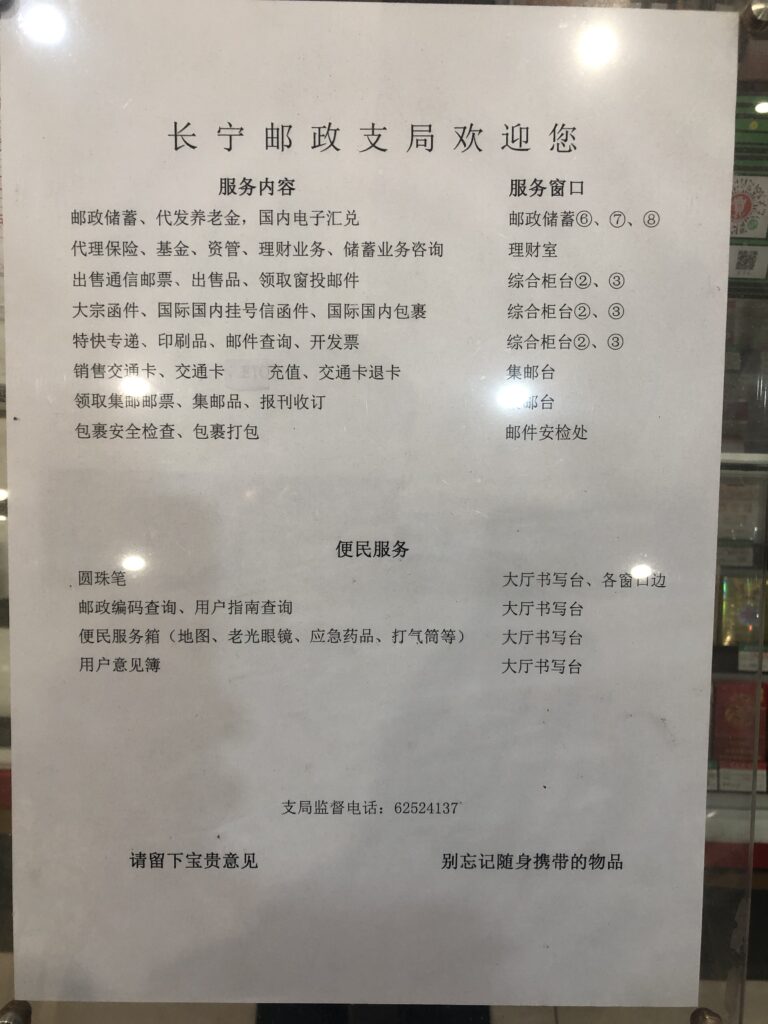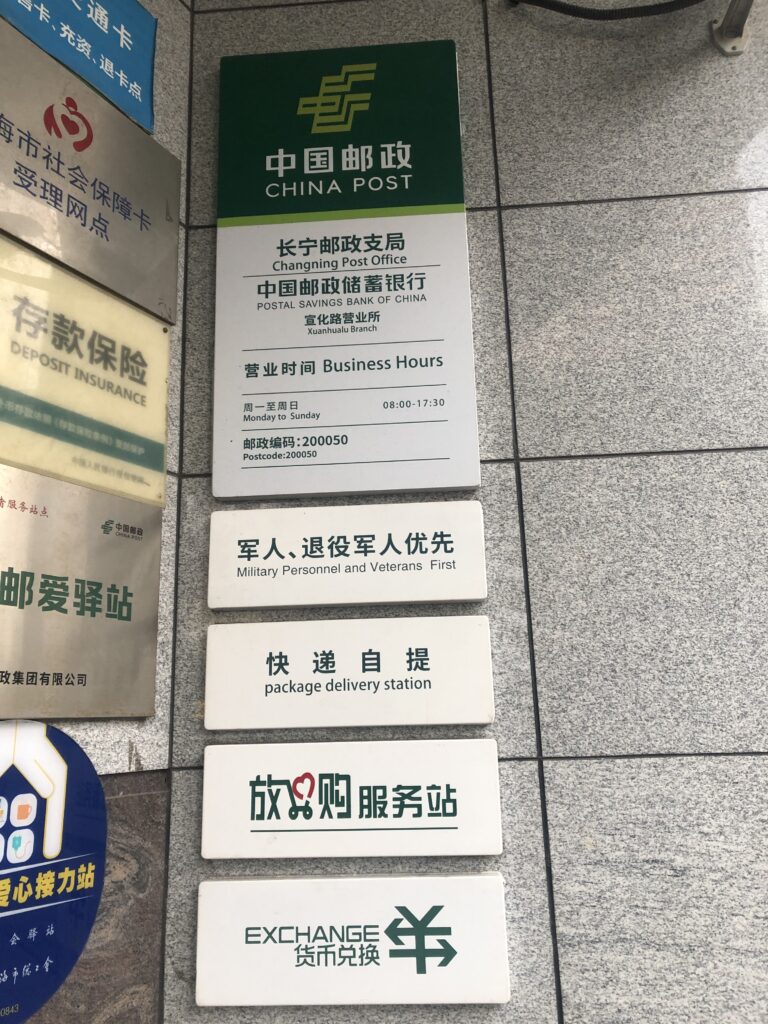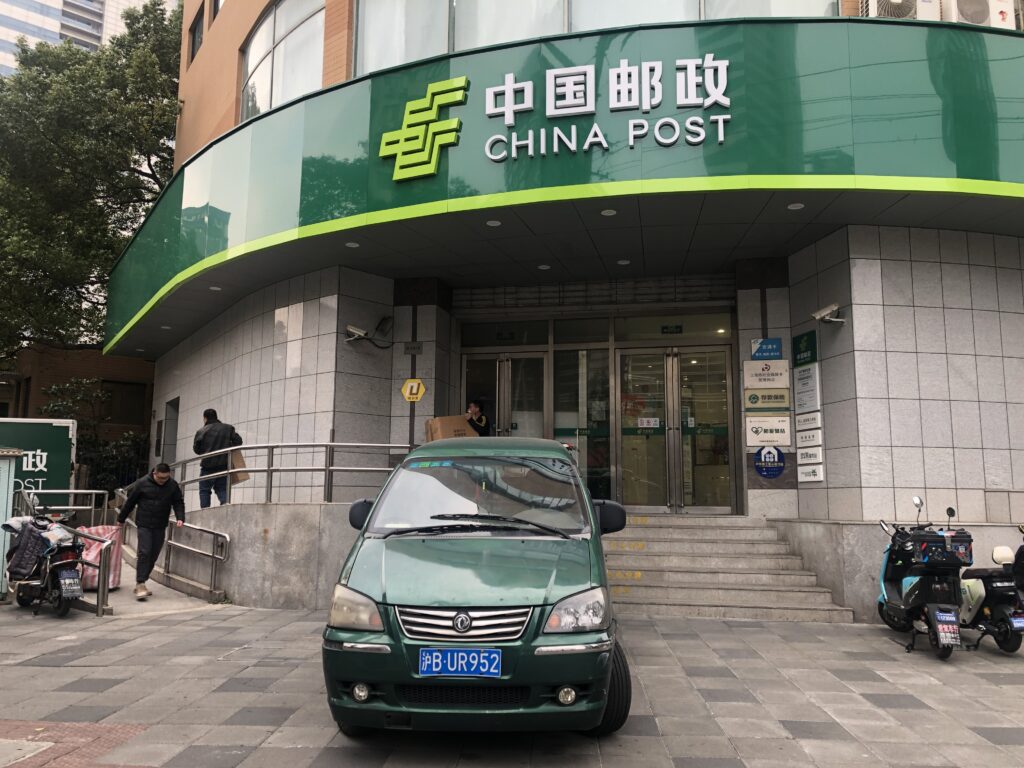After a long and sorry hiatus I flew back to winter in Shanghai, and resumed my grand tour of its many postal facilities. My first this time was Changning Post Office (长宁邮政支局)’s Xuanhua Rd. Branch (宣化路营业所), a major branch in the city’s district bearing that same name. It wasn’t a fruitful venture — the clerk told me with an air of smugness that the latest stamp series was sold out the first day of its release, and that I could not buy the most recent issue of Philatelic Panorama (集邮博览) because this magazine is for annual subscription only. As much as I bemoan this misfortune, I must confess that my trip was not entirely meaningless, as this P.O. had a panel on how customers may access its many services, which offers a succinct summary of a Chinese postal branch’s functionalities and the roles it might play in a community’s daily routine.


As the photo above (to the left) suggests, some of these services are more postal than others. Three broad categories may be delineated:
The first is traditional postal stuff: this branch (1) sells stamps, “other merchandises,” and accepts drop-off mail (2) handles mail bundles, registered letters, packages; (3) deals with express deliveries, print deliveries and issues receipts; (4) distributes stamp collections, magazines and other philatelic products; and (5) accepts packages for security checks and packaging.
The second is somewhat postal-adjacent, as this branch also (5) helps with zip-code lookups and other directory matters; (6) acts as a postal savings bank, pension bureau and wire transfer terminal. We may also place under this category its (7) insurance, funds, capital management and other financial services, as readers should keep in mind China Post’s massive banking wing.
The third is more civic-oriented, including the (8) sale, renewal and cancellation of public transport cards; (9) free supply of pens and other stationery; (10) provision of maps, spectacles, emergency medications and an air pump (for bike tires). For some reason it lists having a “customers feedback brochure” as the branch’s last public service, but such is always appreciated.
These are not all. While I was there several customers, mostly seniors, came in to (11) renew their newspaper subscriptions, and one of them remarked casually that she “goes there everyday anyway” so it was no bother that one of the clerks didn’t come to work today. We must also pay some attention to the many more panels affixed to the P.O.’s front entrance, each denoting an additional service or commitment — one reads “military personnel and veterans first,” another, “package delivery station.” Some mention hitherto unrevealed responsibilities, such as (12) currency exchange; (13) online shopping-related services; (14) assistance with social security application; and (15) as one of the “break stations,” a vast but loosely organized network of public facilities open to city sanitary workers, delivery persons and other manual laborers who might seek shade, heating, water, restrooms or other small amenities during work hours.

